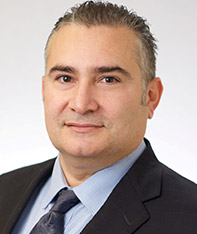
There are several settings in which a U.S. Citizen (USC) can help their foreign national spouse legalize their status. However, this is not an easy process. The United Sates Citizenship and Immigration Service (USCIS) can either adjudicate and approve the application or schedule the couple for an interview in an effort to verify the bona fides of their marriage. This process is entirely random. You should not be alarmed if in fact you are scheduled for an interview.
What is the marriage interview?
If you are scheduled for an interview with the USCIS you should be prepared to demonstrate the bona fides or validity of your marriage. The immigration officer will question you and review the evidence you have provided in order to determine whether or not you actually married for love or simply to obtain an immigration benefit. If you lack sufficient evidence or do not know important personal information about your spouse, USCIS will either deny your petition or reschedule you for a second interview. Typically, USCIS does not make a decision at the interview. Rather, USCIS will send you a decision by mail. The marriage interview is a crucial component of obtaining lawful permanent resident status in the U.S. Indeed, failure to adequately prepare for it can delay the application process or even see the request for lawful permanent resident status denied.
What should you expect at the marriage interview?
At the interview, you are expected to know personal information about your spouse. You will also be required to demonstrate that you have commingled your lives. You will also be expected to provide a great deal of documentation to prove you are living in marital union. For instance, you and your spouse should be prepared to provide:
- Bank statements for accounts held in both spouses’ names;
- Life insurance policies listing the spouse as the beneficiary;
- Birth certificates for marital children listing both spouses as the birth parents;
- Certification of pregnancy from a family doctor;
- Signed, sworn statements from friends and/or family that have been a part of the development of your marital relationship;
- Lease or mortgage agreements in both spouses’ names; and
- Utility bills in both spouses’ names.
This is not meant to be an exhaustive list of documents. However, they are very helpful in demonstrating the validity of your marriage. If you have these or other related documents, you should plan on bringing them to your interview.
If this is your second interview, the interviewing officer will first introduce himself or herself, explain the purpose of the interview, and then separate you and your spouse for questioning. At this interview, the USCIS is basically questioning your marriage and will now ask you both many intimate details about your personal life with your spouse. This type of interview takes significantly longer and is more detailed than the initial interview. It is known as a Stokes interview. At the conclusion of the interview you and your spouse will be given the opportunity to explain any discrepancies in the answers given by both parties. The Stokes interviews are frequently taped by USCIS. Similar to the initial interview, USCIS will likely not make a decision at the interview. Instead, they will mail you a decision.
How can you make the marriage interview process easier?
The following tips can help put you at ease as you get closer to your interview:
- Be at least 30 minutes early – it will give you time to relax and you don’t have to enter the interview rushed;
- Do not worry about memorization – this is not a test, and there are no facts or figures to memorize; and
- Organize all of your documents ahead of time – use a pocket folder and tabs to make the documents more accessible so that you don’t get flustered at the interview;
Legalizing your status is a delicate and serious legal matter. If your marriage includes a partner that is a foreign national and you are interested in applying for legal status for them, it is important that you consult with an experienced immigration attorney to help you understand the process involved. The attorney can ensure that you have filled out the appropriate documents and can help you understand the marriage interview process more fully. Additionally, an immigration attorney can help verify the accuracy and completeness of the many documents you will need to submit throughout the citizenship process, including the marriage interview.
Contact Pollack, Pollack, Isaac & DeCicco, LLP today for more information on how you can start the citizenship process for you or your partner, and to learn more about what the process entails as well as what it will require from you. A marriage is too important not to take advantage of an attorney’s guidance throughout this process, especially because any mistakes you make can cost a great deal of extra money and time as well as endanger your foreign national spouse’s prospective citizenship.










